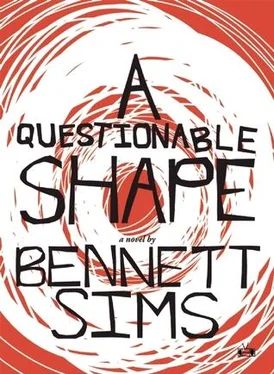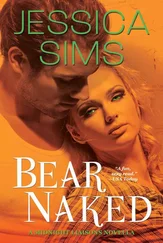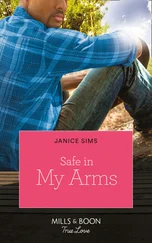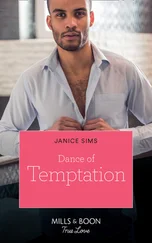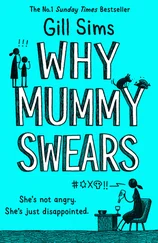Benighted by bibliophily! And yet you couldn’t even call it ‘phily,’ a ‘love’ of books, because I was mastered by meaner demons. Of insecurity, of anxiety, of self-abnegation, of anything but a pleasurable, healthy love-relation. It was as if what I suffered from was bibliophobia, a fear of books that I exorcised precisely by reading them, as if the very act of turning their pages — like switching on the light in a darkened room or throwing back the shower curtain behind which you are certain some murderer lurks — sanitized at once all the mystery of my ignorance of them, and defused their awful power over my imagination. But at any rate benighted by something.
Could anything have dissolved so thoroughly the illusion of progress, so bluntly given the lie to my ‘antipodal goal,’ as an outbreak of the walking dead? My reading was always oriented toward some future, in which I was educated and articulate and admired in high societies. And could anything have shattered so completely one’s hopes for the future, one’s life plans and social ambitions (to say nothing of society itself), as an undead apocalypse? When I am in my worst and most pessimistic moods, I assume that the epidemic can promise only a few outcomes, none of which involve the self I might be at seventy, reclining in a leather chair in my personal library, with winter light and wisdom redounding upon my gray head. In a matter of months, I sometimes assume, I will be fed upon, or all my loved ones will be fed upon, or I will take my own life, or, unable to bring myself to do this even after state and social institutions have collapsed entirely, I will grub among garbage bins behind abandoned grocery stores, defending myself from nomadic, malnourished, and desperate humans as much as from the undead.
I would no sooner read Kant in this world than I would on a desert island. And in fact I haven’t read Kant, or anyone else for that matter, since that first week of panicked news reports. If I were to become more sensitive to the present pleasure of the text, as Mazoch and Rachel seem to be, if I learned to ‘content myself with the discovery of precious stones,’ then perhaps there would remain hope yet for Mazoch to make a Mr. Bemis of me. Until then, my books will remain boxed up beneath the bed, where I cannot see them.
Lately I have been trying to convince myself that it’s safe enough to read again: that outbreaks and attacks are becoming ever rarer, and that there’s nothing to worry about anymore. Even so, I lack the motivation to unbox my books. My only substantial reading material these past couple of months has been FIGHT THE BITE , plus research articles about the infection. The fact is — and as sad as it makes me to admit this — literature has begun to feel hollow to me. Nothing that I read helps me understand the undead. Philosophy, which was supposed to teach me how to die, to prepare me for death, has left me utterly unprepared to meet undeath. I am no better equipped to understand it, after all the Heidegger and David Chalmers and Kant I’ve read, than Mazoch is, who merely has Milosz in his quiver. So whenever I flip through my undergrad copy of the first Critique, for old time’s sake, it is with a kind of sad apathy: Kant’s awe-inspiring blueprints of the human mind (his architectonic tables of our reasoning faculties, categories, and intuitions) tell me nothing about the undead mind. After five or so pages, fidgety with impatience, I have to put Kant aside. Whether I will be able to read next week, once the search is over, I still don’t know.
But I can predict that I will not be reading anything this morning, on my day off. What will I do instead? Make breakfast for Rachel. Make love to Rachel. Maybe take a walk to the LSU Lakes.
IT’S MID-AFTERNOON, AND RACHEL AND I HAVE found a nice patch of grass by the water. We’ve spread out a blanket on the northern shoreline, right beneath the shade of a live oak, where we’ve both been trying to clear our heads of thoughts of the infection.
I’m sitting with my back to the broad oak bole, legs spread out so that Rachel can nestle between them. She’s reclining into me, her own legs straight before her and her head resting on my chest. My arms are crossed over her waist, her arms are on my arms. Ahead of Rachel’s feet the muddy shallows lap at some agapanthus stems, and farther out, in the middle distance, the lake is bisected by an overpass of I-10, its concrete support columns grown mossy where they meet their reflections in the water. Beyond the freeway is the southern shore, its gravel strip shimmering in the sun like a beach. The cypresses along the side banks, emerging from the shallows, stoop over the brown water, and their branches are bare except for where ibises roost in them. When they flap their wings in the branches, the ibises resemble pale hearts in empty ribcages. Bordering the right shoreline, Park Boulevard is busy even now: traffic steady in both directions. 67But the tarmac jogging path circling the lake is empty, and there is only one car visible on the opposite shore’s parking strip. The only vehicles on the overpass are eighteen-wheelers. Their passing trailers are rectangular and blank. The car on the opposite shore, I see, is a police cruiser. Atop its glinting roof, against the bright air behind it, there is the winking of its lights — blue-red, blue-red — as they strobe sirenlessly. It’s a quiet day. The people who would be here normally (the sorority girls jogging along the path, the grizzled black fishermen fishing the fishless water) appear to be avoiding the lake, even though it isn’t technically closed to the public. Standing a few yards ahead of the police cruiser is a single undead silhouette, staring in our direction. It has been standing like that without moving or making a sound since we got here. The officers in the cruiser appear to be supervising the creature, ensuring that it stays put until an LCDC van arrives to detain it. Other than this watcher across the water, Rachel and I have had the area more or less to ourselves.
‘What are you thinking?’ she asks me now, interrupting for the first time in several minutes our pleasant quiet. The goal we had set for the day was to avoid mulling on the infection. Rachel wanted for us to get outside in fine weather and ‘think good things,’ as alive to loveliness and light as if we were on a hike at Tunica. But the truth is that I haven’t been able to stop thinking about the corpse across the water. Even when I try to focus on good things, my thoughts are brought ineluctably back to it; it alone is the final, dispiriting link in every chain of associations. As an example: for a while I had my head cocked back, so that I could look up at the parasol of oak leaves above us. The sunlight was glaring on the backs of the leaves, which — singularly waxy and heavy and dark-green — received this light in a blinding sheen. The sheen reminded me of nothing more than erased paper, that tanline-like whiteness that you can scrub paper down to if you erase in one place too many times. Because the leaves overhead were so similarly white (as white as nothing at all), it seemed as if someone had taken an eraser to them, worn them thin, leaving where their green was these patches of attrited whiteness. That was all pleasant and fine to notice. But then the glare of sunlight on the leaves started to remind me of nothing more than nothing, than erasure and absence, a leaf ’s Being being scrubbed away by an ontic eraser. And once my mind made the relevant connections between sheeny light and nullness, the game was up: I imagined that the oak leaves, glazed with erasure-colored sun, were absences that had actually leafed into the world, lobate blanknesses that had budded through the air and there unfolded, immaculately white, like magnolias of lack. This seemed as apt a representation as any for the infection (which, too, is an absence of sorts, which too has flowered whitely into the world, bite mark by bite mark), so there I was thinking about the infection and undeath and all the other unpleasant things that gazing at the oak leaves was supposed to be taking my mind off of. Not least the silhouette on the opposite shore, which for obvious reasons I found it impossible, then, not to look at. And the sight of it — awful even at this distance! That pale shape still stationed there, that corpse standing sentinel over us all afternoon… could my chain of associations have been tethered to any better death’s head than this? Could I have hauled in my chain of associations, link by submerged link, and found any more horrific a memento mori attached as its anchor? The eyes white as erased paper, the cadaver a carapace of lack— that’s where my chain of associations led!
Читать дальше
